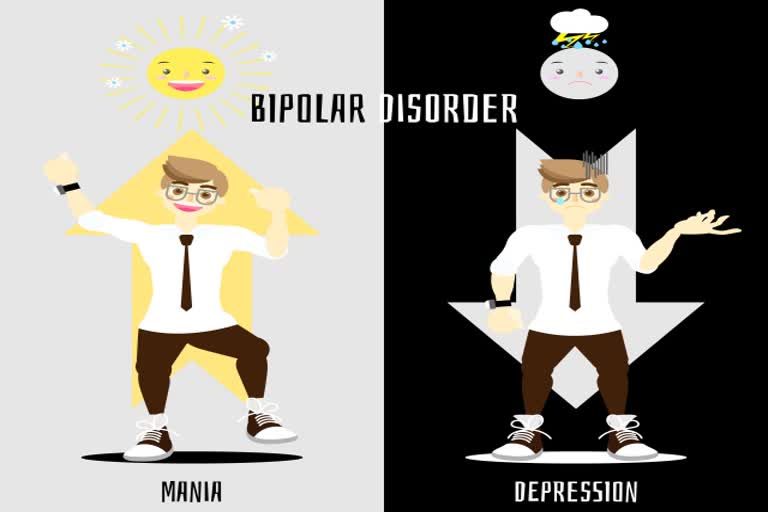Around 45 million people in the world suffer from Bipolar disorder. So, what is it and can it be treated? Today, let us know about it with senior Psychiatrist Dr. Veena Krishnan, Dehradun.
Bipolar Disorder
Dr. Veena Krishnan explains that bipolar disorder is a mood disorder, which can also be understood as mania or hypomania. In this psychic disorder, a person’s mood can change repeatedly and the duration of mood change can be either a few days or sometimes even a few months. Sometimes he/she feels highly energetic and sometimes without feeling tired, they continuously keep working day and night or they keep thinking, while on the other hand, they may also suffer from deep depression without any reason. Changes in this state can also be hypomanic. If this disorder is diagnosed early, at the right time, then with the help of various therapies and medications, the condition can be controlled. Otherwise, if the condition worsens, the person may try to commit suicide or try other ways to harm himself. Experts also say that a person suffering from this disorder is unable to control his behavior even if he wants to.
Symptoms Of Bipolar Disorder
There are various symptoms that a person having bipolar disorder may present. Usually, the symptoms of this disorder remain normal until the problem worsens. Apart from excessive behavior of any kind, other symptoms of bipolar disorder are as follows:
- Sleeplessness
- Stress, anger, depression, and fatigue
- Irritability
- Trouble thinking and forgetfulness
- Inability to do any work in a proper manner
- Trouble talking to other people
- Lack of energy or unwillingness to do any work
- Always be lost in own thoughts and inability to control thoughts
- Drug addiction
- Not being able to control habits like shopping and spending a lot of money on unnecessary things
- Not eating food or eating very little
- Sudden sadness, without any reason
- Saying something repeatedly, at much speed, or very frequently
- Performing self-harming activities like cutting or burning the skin, overdosing oneself with medicines, etc.
- Frequent suicidal thoughts
- Restless or careless behavior such as unprotected or careless driving
- Being afraid when alone
- Feeling lonely even when surrounded by people
Also Read: Impact Of Online Learning On Attention In Children
Causes Of Bipolar Disorder
In most cases, physical changes in the brain are responsible for this disorder. At the same time, imbalance in the neurotransmitter or the chemicals in our brain can also cause this condition. Talking about behavioral reasons, Dr. Krishnan says that the most common human habit is comparing especially on the basis of habits, behavior, personality, and beauty and sometimes, their social, as well as economic status, are also the basis of comparison. This comparative behavior in people generates a sense of inferiority and insecurity in those people who are undervalued. This is one of the major causes of bipolar disorder.
Apart from this, addiction to overconsuming drugs can also be a cause. Too much stress or depression can also give rise to such a condition. Dr. Krishnan explains that bipolar disorder also comes under the category of genetic disease. People who have this disorder in the family are at a higher risk of suffering from this condition.
Treatment For Bipolar Disorder
Dr. Krishnan says that by examining MHP mental health, with the help of family therapies like ECT and talk therapies, this disorder can be examined as well as treated. Apart from this, the patient can be treated with electroconvulsive therapy and other therapies and medicines like mood stabilizers and antidepressants can be used.
What To Do And What Not To?
- Stress is considered to be one of the main causes of bipolar disorder so avoid stress as far as possible.
- Stay away from drugs or narcotic substances like alcohol or cigarettes because they rather increase stress, which in turn worsen the disorder.
- Regular yoga, meditation, and exercise are the best solution for bipolar disorder. Along with keeping the body healthy, it helps in keeping the emotions in control and dealing with sleeplessness.
- Try to have a balanced routine and consume a balanced diet.
- Maintain positivity and optimistic thinking



